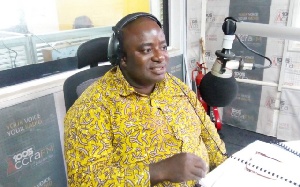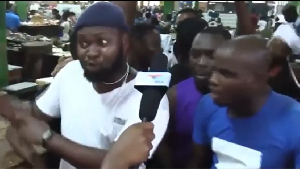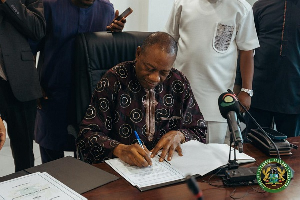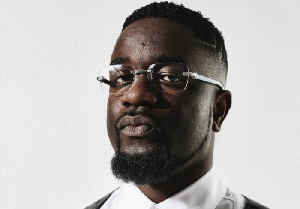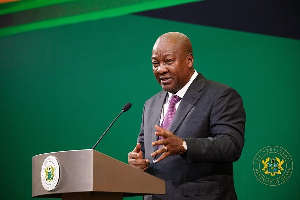“…institutional constitutionalism implies respect for the autonomy and functional independence of constitutional institutions while refraining from acts that overtly or covertly undermine their capacity to discharge the duties entrusted upon them as contemplated by the constitution”.
The above quote was taken from a lecture delivered by my friend Ernest K. Abotsi of the KNUST law faculty. The occasion was the FNF/CDD lecture series on the topic “Strengthening the Liberal Roots of the 1992 Constitution: An Agenda for Reform” and the date was 8th December, 2009.
He adds: “In many ways, the values of constitutional liberalism has been undermined by subtle, but deep seated negative political sub-cultures coupled with the dysfunctional exploitation of constitutional institutions for parochial political ends”.
For sometime I had the belief that certain things we say and or do undermines the constitutional democracy we are practicing. Those same things erode the confidence needed by constitutionally mandated institutions to carry out their duties. About two months after the lecture a man was arrested on suspicion of acting contrary to section 208 of criminal and other offences act of 1960 and my belief was strengthened not by his arrest, but by matters that arose. It was reported that the Minority in parliament (with its Leader as spokesman) “accused government of using the coercive machinery of the state to intimidate critics”. The report added “even though he conceded that the comments made by Darkwa were in bad taste…”. The “bad taste” notwithstanding, the minority leader led a “resolve to boycott parliamentary proceedings till further notice”. He and his group considered it a “naked attempt by the NDC to muscle the press and criminalise freedom of speech”. (myjoyonline).
Before the minority’s action “Ursula Owusu Fumes” was the headline on citifmonline. Ursula (whose beauty and passion I admire) was “shocked and alarmed at how the security agencies are being used to gag the Ghanaian citizenry. The Constitution guarantees the right to free speech”.
Bang! Enter Ato Kwamina Dadzie with his piece “Silencing the ‘Dogs’”. Ato had a hunch that there was an “unseen hand” pulling strings. In all his days in this country he had not heard of a case in which “a suspect was arrested at midday and taken to court two hours later and thereafter the judge decides to remand him for two weeks”. Ato continued “only puppet judges – whose strings are being pulled by the invisible hand – will remand someone charged with an obscure antiquated law for that long”.
I have quoted these three people because of their position and influence. A minority leader, a lawyer cum human rights activist and a journalist. Certainly, if they speak it reaches far. I am however, not disputing their rights (which they have duly exercised).
I can say with all the confidence a can muster from my small chest that our rights and responsibilities are concomitant. I am not a lawyer but I have had about twelve years experience in the courtroom and have been part of many cases. In one of such cases at the Circuit Court in Cape Coast, a woman who deceived a public officer was arrested, arraigned before court and sentenced two years in hard labour. All in a matter of 30-40 minutes! About 15 minutes after her sentence she was on her way to Sekondi prisons. On several occasions the police will arrest a suspect in the morning and by noon the court would have sentenced, remanded or granted him/her bail. We should remember that the granting of bail is the discretion of the court. Section 208 of the criminal and other offences act was promulgated in 1960, and once it is still in our books the police can use it as and when they believe they have enough grounds to do so. The situation where we jump on the police service or the judiciary is not the best and does not augur well for our liberal constitutional democracy.
Anything recognizable as a state must have some acknowledged means of constituting and specifying the limits (or lack thereof) placed upon the three basic forms of governmental power: legislative, executive and judicial powers. We all seem to agree with Bruce Ackerman in his “We the People: Foundations” that there are “rules creating legislative, executive and judicial powers, but that the same rules impose limits on those powers”. Let us work towards what my friend Abotsi calls “Institutional Constitutionalism”. Which core values and philosophy inspired the design of our constitution? Is it insult and irresponsibility? Or is it unnecessary politicization of every issue? I dare say that our actions, inactions or words have mostly been aimed towards either “overtly” or “covertly” undermining lawfully established institutions. If not why should the arrest of a person be “unacceptable” when what he did or said was in “bad taste” and was sent to a duly constituted forum? Why have we accepted the abhorrent conditions prevailing in our prisons as “normal”?
In an editorial posted on myjoyonline (5/3/10) the Daily Democrat was quoted as having called on government “to show more interest in this issue to ensure that people are not denied justice for reasons not linked to them. Anybody could become a victim of this problem, so the earlier something is done about remand suspects, the better”. Sometime between 1999/2000 whiles I was at the High Court in Cape Coast, my judge Mrs. Iris May Brown (now at the Appeals court) discharged about five accused persons. The reason? For want of prosecution! Some had been in prison custody for about 13 years. After several invitations to then regional crime officer Mr. Tattah, a bench warrant was issued for his (Tattah’s) arrest.
The short of it is that Mr. Tattah appeared with Mr. Osei (then Chief State Attorney) to explain that in some of the cases the witnesses could not be located, or that the investigators were either on retirement or on transfer. Her Ladyship Mrs. Brown had to discharge them. In the same year about seven cases were completed on assizes out of which the jury found only one accused person guilty of manslaughter. On average the minimum years they spent commuting to the court premises was about six years. Two years later I met one of the discharged persons at Mankessim and he told me nobody had asked him anything about the case. The only thing he was not happy about was that his wife had left the matrimonial home with his two kids. If the judge had discharged them this year (2010) and the media had got wind of it what do you think would happen?
Section 166 of the criminal and other offences (procedures) act 1960 (Act 30) states: “where the accused comes before the court, on summons or warrant, or otherwise, originally or on adjournment, then if the prosecutor, having had notice of the time and place appointed for the charge, does not appear, the court shall dismiss the charge unless the court thinks it proper to adjourn or further adjourn the hearing of the case to another date on terms determined by the court”. The question is why were those people kept in prison for that long and why are others being kept there? Why are we not making much noise and making the right moves to ensure that each and everyone’s right is protected? Are we practicing an animal farm type of society? Or they are “dogs” who need to be silenced?
We must not be seen to be hypocrites and forget that liberty and equality are found in democracy. Let us stop “covertly” or “overtly” undermining our constitutionally mandated institutions. We must remember what Thomas Paine wrote in his “Common Sense” that “for were the impulses of conscience clear, uniform, and irresistibly obeyed, man would need no other lawgiver; but that not being the case, he finds it necessary to surrender up a part of his property to furnish means for the protection of the rest; and this he is induced to do by the same prudence which in every other case advises him out of two evils to choose the least”.
We have chosen constitutional democracy over military rule and other forms of governance. Our laws may be too strict, our prescribed punishments may be too harsh but out of “the two evils we have chosen the least” – democracy. If the police have any suspicions that a crime will be committed, about to be committed or has been committed, they should use legal means to avert it or arrest the perpetrators. If an action is prosecutable, they should proceed to the court. And if at the end of the day the court thinks it is punishable or otherwise so be it. All this while, let us allow our lawful institutions to work.
Anas Abdul-Mumuni - anasabdulmumuni@yahoo.com
Opinions of Wednesday, 17 March 2010
Columnist: Abdul-Mumuni, Anas


